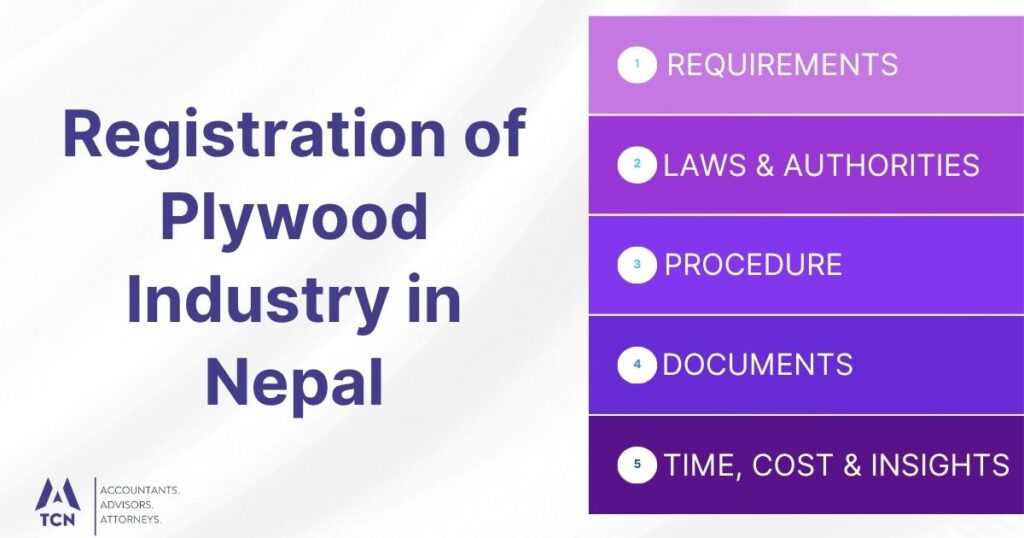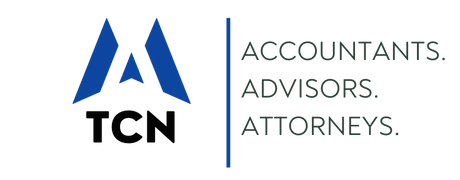Introduction to Plywood Industry Registration in Nepal
Nepal’s manufacturing sector presents significant opportunities for investors seeking to establish plywood industries. The registration of plywood industry in Nepal requires compliance with multiple regulatory frameworks, including the Industrial Enterprises Act 2020, Foreign Investment and Technology Transfer Act 2019, and various environmental regulations.
The plywood industry falls under the manufacturing sector and requires proper registration with the Department of Industry (DoI) and other relevant authorities. Foreign investors can establish plywood manufacturing units through FDI in Nepal, while domestic entrepreneurs can register under the cottage, small, medium, or large industry categories based on their investment capacity.
Nepal’s strategic location between India and China, abundant forest resources, and government incentives for manufacturing investment Nepal make it an attractive destination for plywood industry establishment. The Industrial Policy 2010 and subsequent amendments provide various facilities including tax exemptions, land acquisition support, and infrastructure development assistance.
The registration process involves obtaining industrial registration, environmental clearance, and various operational licenses. Understanding Nepal investment laws and compliance requirements ensures smooth business operations and legal protection for investors.
Legal Framework and Requirements for Plywood Industry Registration
Industrial Classification and Investment Thresholds
The Industrial Enterprises Act 2020 classifies plywood manufacturing under different categories:
- Cottage Industry: Investment up to NPR 500,000
- Small Industry: Investment from NPR 500,001 to NPR 15 million
- Medium Industry: Investment from NPR 15 million to NPR 100 million
- Large Industry: Investment exceeding NPR 100 million
Foreign Investment Regulations
Foreign investors must comply with the Foreign Investment and Technology Transfer Act 2019 (FITTA 2019). The Act permits 100% foreign ownership in plywood manufacturing, making it attractive for international investors seeking manufacturing opportunities in Nepal.
Key provisions under FITTA 2019 include:
- Minimum investment threshold of USD 500,000 for foreign investors
- Automatic approval for investments not exceeding NPR 6 billion
- Technology transfer agreements must be registered separately
- Repatriation of profits and capital allowed after tax compliance
Environmental Compliance Requirements
The Environment Protection Act 2019 mandates Environmental Impact Assessment (EIA) or Initial Environmental Examination (IEE) for plywood industries. The classification depends on production capacity and environmental impact potential.
EIA Requirements
Industries with significant environmental impact require comprehensive EIA studies covering:
- Air quality impact assessment
- Water pollution control measures
- Solid waste management plans
- Noise pollution mitigation strategies
Detailed Registration Process for Plywood Industry
Step 1: Preliminary Preparation and Feasibility Study
Conduct comprehensive market research and feasibility analysis before initiating the registration process. This step involves identifying suitable locations, assessing raw material availability, and evaluating market demand for plywood products.
Prepare a detailed project proposal including investment amount, production capacity, employment generation, and expected revenue. The proposal should align with Nepal’s Industrial Policy objectives and demonstrate contribution to economic development.
Engage legal consultants familiar with Nepal investment laws to ensure compliance with all regulatory requirements. This preparation phase typically takes 2-4 weeks depending on project complexity and investor readiness.
Step 2: Industrial Registration Application Submission
Submit the industrial registration application to the Department of Industry through the online Industrial Registration Information System (IRIS) or physical submission at DoI offices.
Complete Form 1 (Industrial Registration Application) with accurate information about the proposed plywood industry. Include details about promoters, investment amount, production capacity, and employment plans.
Pay the prescribed registration fees based on industry classification. The fees range from NPR 1,000 for cottage industries to NPR 50,000 for large industries, as specified in the Industrial Enterprises Regulation 2021.
Step 3: Environmental Clearance Acquisition
Apply for environmental clearance from the Department of Environment based on the industry’s environmental impact classification. Submit the EIA or IEE report prepared by certified environmental consultants.
The environmental clearance process involves public consultation, expert review, and field verification by DoE officials. Compliance with environmental standards outlined in the Environment Protection Rules 2020 is mandatory.
Obtain the Environmental Clearance Certificate before proceeding with construction or machinery installation. This certificate remains valid for the project’s entire operational period with periodic compliance monitoring.
Step 4: Additional Licenses and Permits Acquisition
Secure necessary operational licenses including:
- Factory license from the Department of Industry
- Fire safety clearance from local fire departments
- Building construction permits from municipal authorities
- Electricity connection permits from Nepal Electricity Authority
Register with the Inland Revenue Department for tax purposes and obtain a Permanent Account Number (PAN). Value Added Tax (VAT) registration is mandatory for industries with annual turnover exceeding NPR 2 million.
Step 5: Final Registration and Commencement Certificate
Upon completing all requirements, DoI issues the Industrial Registration Certificate and Commencement Certificate. These documents authorize legal operation of the plywood manufacturing facility.
The certificates specify production capacity, investment amount, and operational conditions. Any modifications to registered parameters require prior approval from DoI through prescribed amendment procedures.
Maintain compliance with all conditions specified in the registration certificates throughout the operational period. Regular reporting and renewal requirements must be fulfilled as per Industrial Enterprises Regulation 2021.
Essential Documents Required for Registration
Primary Documentation
The registration process requires comprehensive documentation to establish legal compliance and operational readiness:
- Project Proposal: Detailed feasibility study with financial projections
- Memorandum and Articles of Association: For company registration
- Investment Commitment Letter: Bank guarantee or financial institution certification
- Land Ownership Documents: Title deeds or lease agreements for factory premises
- Technical Specifications: Machinery details and production process documentation
Regulatory Compliance Documents
- Environmental Impact Assessment: EIA or IEE report by certified consultants
- Fire Safety Plan: Approved by local fire department authorities
- Building Design Approval: Municipal corporation construction permits
- Utility Connection Applications: Electricity, water, and telecommunication services
- Tax Registration Certificates: PAN and VAT registration from IRD
Foreign Investment Specific Documents
Foreign investors must provide additional documentation under FITTA 2019:
- Foreign Investment Approval: From Department of Industry
- Technology Transfer Agreement: If applicable, registered with DoI
- Source of Fund Certification: Bank statements and fund transfer documentation
- Investor Background Verification: Due diligence reports and financial statements
Supporting Documentation
- Promoter Identification: Citizenship certificates or passport copies
- Educational Qualifications: Technical expertise certification
- Experience Certificates: Relevant industry experience documentation
- Partnership Agreements: Joint venture or collaboration agreements
Time Frame and Investment Costs
Registration Timeline
The complete registration process for plywood industry typically requires 3-6 months, depending on project complexity and regulatory compliance efficiency:
Phase 1: Preparation and Application (4-6 weeks)
- Feasibility study and documentation preparation
- Initial application submission to DoI
- Preliminary approvals and fee payments
Phase 2: Regulatory Clearances (8-12 weeks)
- Environmental clearance processing
- Technical evaluation and site verification
- Inter-agency coordination and approvals
Phase 3: Final Registration (2-4 weeks)
- Certificate issuance and final documentation
- Operational permit acquisition
- Commencement authorization
Investment and Registration Costs
Government Fees and Charges
Registration costs vary based on industry classification and investment amount:
- Cottage Industry: NPR 1,000 – 5,000
- Small Industry: NPR 5,000 – 15,000
- Medium Industry: NPR 15,000 – 30,000
- Large Industry: NPR 30,000 – 50,000
Professional Service Costs
- Legal Consultation: NPR 50,000 – 200,000
- Environmental Consultancy: NPR 100,000 – 500,000
- Technical Consultancy: NPR 75,000 – 300,000
- Documentation and Translation: NPR 25,000 – 100,000
Additional Compliance Costs
- Land Acquisition/Lease: Varies by location and size requirements
- Utility Connections: NPR 200,000 – 1,000,000 depending on capacity
- Insurance Premiums: 0.5% – 2% of total investment annually
- Working Capital Requirements: 15% – 25% of total project cost
Post-Registration Compliance and Obligations
Operational Reporting Requirements
Registered plywood industries must maintain compliance with ongoing reporting obligations under the Industrial Enterprises Act 2020:
Annual Returns Submission
- Production and sales reports to Department of Industry
- Employment statistics and wage information
- Financial statements and audit reports
- Environmental compliance monitoring reports
Quarterly Reporting
- Production capacity utilization reports
- Raw material consumption and inventory status
- Export performance and foreign exchange earnings
- Technology transfer implementation progress
Tax and Financial Obligations
Corporate Income Tax Compliance
Plywood industries must comply with Income Tax Act 2058 provisions:
- Corporate tax rate of 25% on taxable income
- Advance tax payments in quarterly installments
- Annual tax return filing by Shrawan 15 (July 31)
- Withholding tax compliance on various transactions
Value Added Tax Requirements
- Monthly VAT return filing for registered businesses
- Input tax credit claims on raw materials and machinery
- Export VAT refund procedures for overseas sales
- Electronic billing system implementation for transparency
Environmental Monitoring and Compliance
Periodic Environmental Audits
- Annual environmental compliance audits by certified auditors
- Air and water quality monitoring reports
- Waste management and disposal documentation
- Community impact assessment and mitigation measures
Renewal and Amendment Procedures
Industrial registration certificates require periodic renewal and amendment for:
- Production capacity expansion or modification
- Change in ownership structure or management
- Technology upgrades or process modifications
- Additional product line introduction
The amendment process involves application submission, technical evaluation, and regulatory approval similar to initial registration procedures.
Frequently Asked Questions
What is the minimum investment required for plywood industry registration in Nepal? Cottage industries require minimum NPR 500,000 investment, while foreign investors need USD 500,000 minimum under FITTA 2019. Investment classification determines applicable benefits and regulatory requirements.
How long does the complete registration process take for plywood manufacturing? The registration process typically takes 3-6 months including documentation preparation, regulatory clearances, environmental approvals, and final certificate issuance from relevant government authorities.
Where should investors submit their plywood industry registration applications? Applications must be submitted to the Department of Industry through online IRIS system or physical offices. Environmental clearances require separate applications to Department of Environment.
What are the essential requirements for foreign investors in plywood industry? Foreign investors need minimum USD 500,000 investment, FITTA approval, environmental clearance, technology transfer registration if applicable, and compliance with repatriation regulations.
What are the total costs involved in plywood industry registration? Registration costs range from NPR 100,000-800,000 including government fees, professional consultancy, environmental studies, and documentation expenses depending on industry size and complexity.


